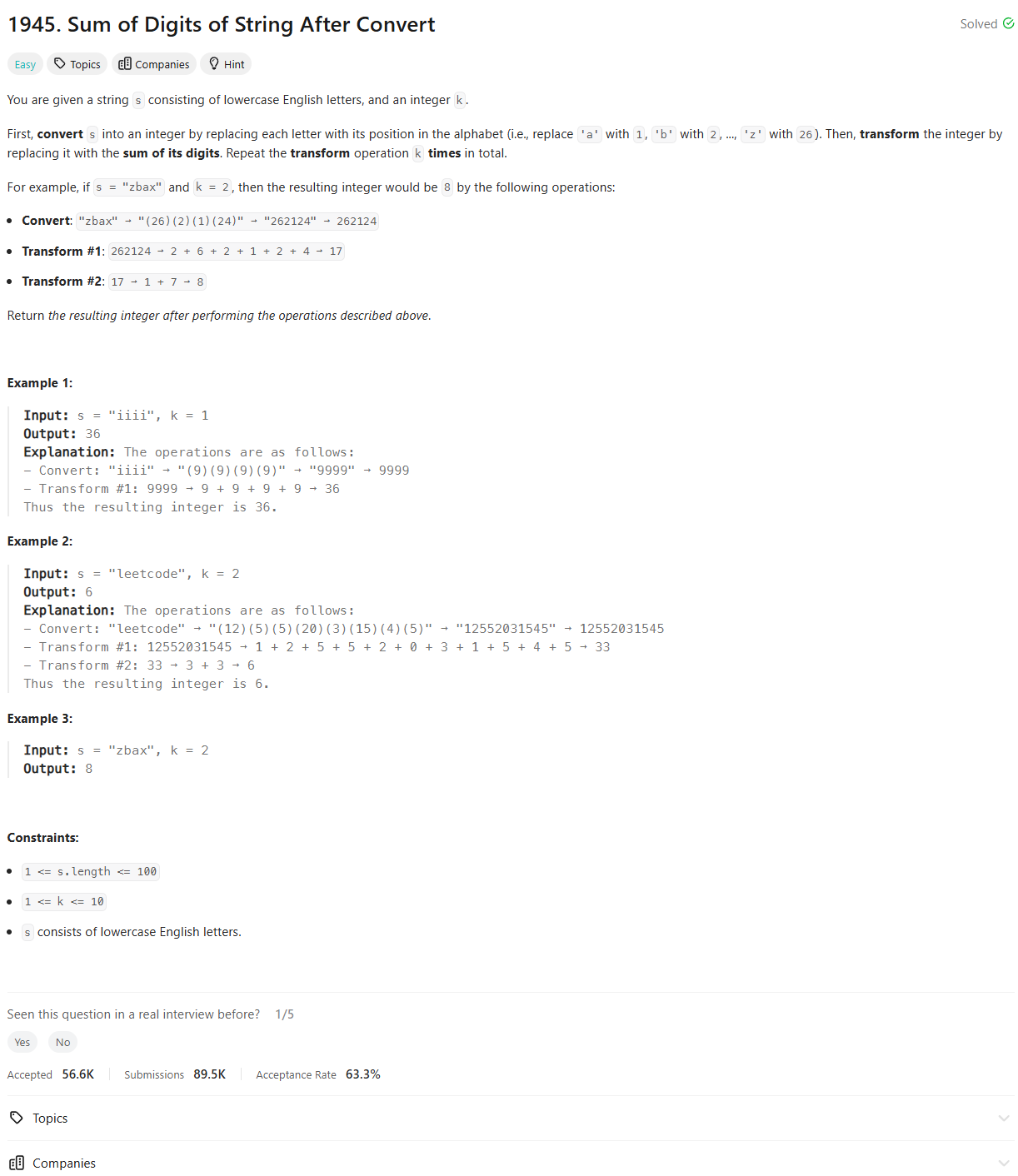Problem of The Day: Sum of Digits of String After Convert
Problem Statement

Intuition
When I first encountered this problem, my immediate thought was to convert each character in the string into its corresponding numeric value based on its position in the alphabet. Then, by summing these digits multiple times as required, I could gradually reduce the number until the transformation process is complete.
Approach
I began by iterating through the string, converting each character into its numeric equivalent and then concatenating these numbers to form a large number string. The core of the solution is to repeatedly sum the digits of this number string k times, transforming the result in each iteration until the final value is obtained. This approach ensures that the transformations are performed exactly k times, reducing the number down step by step.
Complexity
- Time complexity:
The time complexity is determined by the length of the string and the number of transformations
k. The conversion of each character into a digit is \(O(n)\), and each transformation step also takes linear time, leading to an overall complexity of \(O(n \cdot k)\). - Space complexity:
The space complexity is primarily \(O(n)\), where
nis the length of the string. This space is needed to store the intermediate digit string.
Code
class Solution:
def getLucky(self, s: str, k: int) -> int:
digits = ""
for c in s:
digit = int(ord(c) - ord('a') + 1)
digits += str(digit)
res = 0
while k > 0:
res = 0
for digit in digits:
res += int(digit)
digits = str(res)
k -= 1
return res
Editorial
Approach 1: String Concatenation to Summation
class Solution:
def getLucky(self, s: str, k: int) -> int:
# Convert each character to its numerical value and build a string
numeric_string = ""
for ch in s:
numeric_string += str(ord(ch) - ord("a") + 1)
# Apply digit sum transformations k times
while k > 0:
digit_sum = 0
for digit in numeric_string:
digit_sum += int(digit)
numeric_string = str(digit_sum)
k -= 1
# Convert the final string to integer and return
return int(numeric_string)
- time: O(k * n)
- space: O(n)
Approach 2: Direct Integer Operation
class Solution:
def getLucky(self, s: str, k: int) -> int:
# Convert the string to a number by summing digit values
current_number = 0
for ch in s:
position = ord(ch) - ord("a") + 1
while position > 0:
current_number += position % 10
position //= 10
# Apply digit sum transformations k-1 times
for i in range(1, k):
digit_sum = 0
while current_number > 0:
digit_sum += current_number % 10
current_number //= 10
current_number = digit_sum
return current_number
- time: O(n)
- space: O(1)